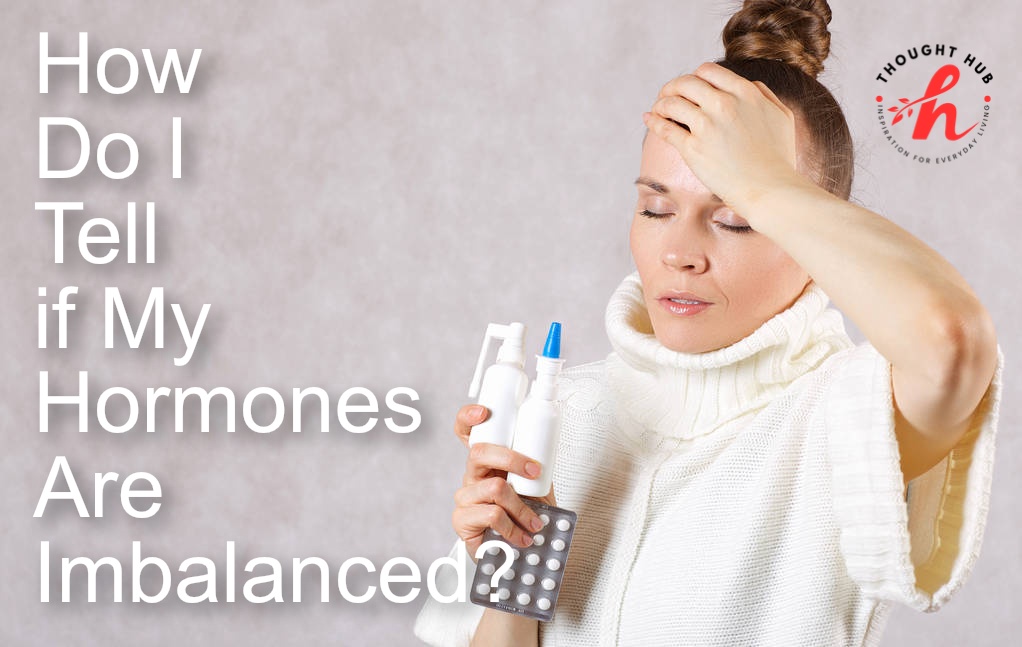How Do I Tell if My Hormones Are Imbalanced?

If you feel like your hormones are out of balance, make an appointment with a hormone specialist. They’ll run tests to check your levels and identify whether you have any underlying conditions. Signs that suggest hormonal imbalances include:
Physical Signs
There are physical symptoms that let you know it’s time to visit a hormone specialist. If you can’t explain your weight gain or loss over the past few weeks, you could have a hormonal problem. Chemicals such as insulin, cortisol, thyroid, and estrogen help to control your weight. When your thyroid is underactive, you gain weight, feel sluggish, and struggle to lose fat even with diet and exercise. An overactive thyroid might lead to sudden weight loss, feeling jittery, and an inability to gain weight no matter how much you eat.

- You may also feel chronic fatigue even after a full night’s sleep if you have hormonal issues. Cortisol,
- Which manages your stress, also controls your energy.
- If your body releases too high or low cortisol, you may feel persistently tired, affecting your productivity.
- Another sign to look for is sleep disturbances. Low progesterone levels can make it hard to fall or remain asleep.
- For women, changes in menstrual cycles such as irregular periods, missing periods, or heavy periods show hormonal fluctuation. Low testosterone in men might result in losing hair, muscle weakness, and low libido.
Digestion and Appetite
Your digestive system and appetite levels can tell a lot about your hormones. If you’re feeling bloated, nauseated, constipated, or have diarrhea, going to a hormone specialist can help. High cortisol worsens your anxiety and stress, increasing your gut inflammation, which causes digestion problems. Chronic stress not only leads to stomach discomfort but might also cause sudden changes in bowel movements.

If you crave sugary snacks or feel an increase in appetite, you may have insulin dysregulation. This happens when your body’s cells stop reacting well to insulin, affecting your sugar levels. Those with insulin resistance may feel hungry often, which could lead to overeating. Low estrogen in women, especially those going through menopause, can increase the body’s fat storage. If you notice strange changes in your appetite or digestion without any cause, see a specialist.
Skin and Hair
Other parts of your body that are sensitive to hormones include your skin and hair. A sudden breakout of adult acne could mean your androgens are fluctuating. Increased androgen levels cause your sebaceous glands to overproduce oil, which clogs your pores. Women who develop acne around their menstrual cycle have shifting levels of progesterone and estrogen. Dry or oily skin is also a sign of an imbalance.
- Hormones might also be the reason why your hair is thinning.
- They cause excessive hair growth or hair appearing in unusual places like the chin or chest in females.
- Although hair loss is often genetic in men, low testosterone can also cause sudden baldness accompanied by fatigue and weight change.
Visit a Hormone Specialist Today

If you’re feeling tired, struggling to lose or gain body fat, bloating, having diarrhea, losing hair, and getting acne, book a hormone specialist. Changes in your mood, like irritability for no reason, panic attacks, and depressive symptoms, could also be your hormones dysregulating. An expert will run tests to pinpoint the imbalances and offer treatments to help you restore normal hormonal function. Call a hormone specialist today to discuss your symptoms and create a treatment plan.

